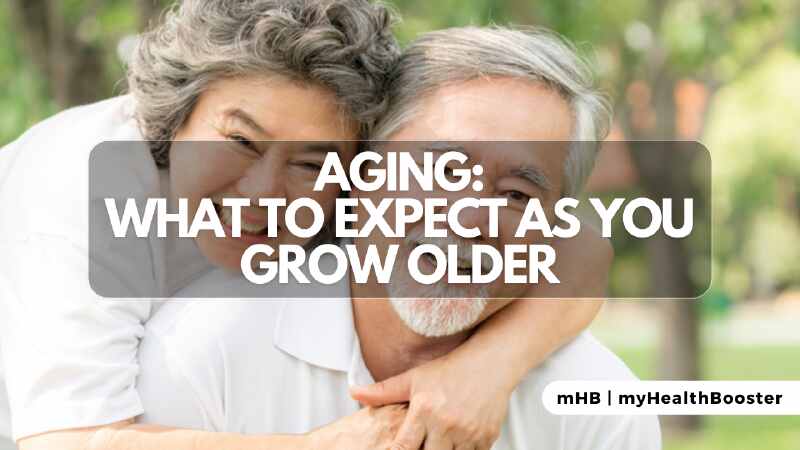As the years pass, aging brings about a series of changes, both expected and surprising. This article explores the various facets of aging, shedding light on what happens to our bodies, minds, and lifestyles as we grow older.
Brain Changes and Mental Work
The aging brain undergoes transformations, impacting mental processes. While the ability to process information and memory tends to decline after the 30s, there’s a silver lining. Older adults excel in crystallized intelligence, showcasing accumulated knowledge and well-practiced skills such as vocabulary and arithmetic.
Personality Evolution
Contrary to previous assumptions, personalities continue to evolve with age. Studies reveal that individuals become more conscientious and agreeable, with increased discipline and warmth, defying stereotypes about fixed personalities in older age.
Sexual Satisfaction
Surprisingly, studies indicate that sexual satisfaction tends to increase with age. More permissive attitudes, advances in medicine, and changing societal norms contribute to a higher level of reported sexual satisfaction among seniors, challenging misconceptions about aging and intimacy.
Taste Changes and Dietary Adaptations
The sense of taste evolves with age, influenced by medications, illnesses, and other factors. Adapting to these changes can be an opportunity to explore healthier food choices, minimize reliance on excessive salt, and enhance overall well-being.
Hair Growth and Hormonal Shifts
Aging brings about hair growth in unexpected places, influenced by hormonal changes. While men may experience increased nose and ear hair due to testosterone sensitivity, women, particularly during menopause, may notice coarser facial hair as estrogen levels decrease.
Sleep Patterns and Aging
Aging often affects sleep patterns, leading to earlier waking and changes in REM sleep. Addressing sleep issues involves adopting healthy sleep practices, including regular sleep schedules, limiting caffeine intake, and staying physically active.
Migraines in Seniors
Seniors may experience a reduction in the frequency and intensity of migraines, offering a potential silver lining for those who have dealt with these headaches throughout their lives.
Impact of Work and Retirement
Contrary to popular belief, a dedicated approach to work is associated with a longer life, challenging the notion of a carefree attitude. Retirement may affect self-confidence, with wealth, good health, and supportive relationships acting as protective factors.
Falls, Fear, and Physical Activity
Fear of falling can contribute to a higher risk of falls among seniors. Balancing caution with physical activity, regular eye check-ups, and creating a safer home environment are key strategies for fall prevention.
Self-Confidence and Aging
Self-confidence tends to increase throughout life until retirement, when a dip may occur. Wealth, good health, and supportive relationships can mitigate the impact of this decline in self-confidence.
Stress Levels in Older Generations
Older generations generally experience lower stress levels compared to younger individuals. Chronic stress has been linked to premature aging, emphasizing the importance of stress management for overall well-being.
Height Changes and Dietary Habits in Aging
As people age, they tend to shrink due to spine-related changes. A healthy diet, the avoidance of tobacco, limited alcohol consumption, and regular exercise can slow down this process.
Political Engagement in Seniors
Seniors are more politically active, particularly in voting. This involvement can significantly influence political decisions related to aging, healthcare, and retirement.
Happiness in Older Age
Contrary to stereotypes, older people report higher levels of happiness. Mental health improves over time, demonstrating that life tends to get better with age.
Immunity and Resistance to Colds in Aging
Older individuals have enhanced immunity against common colds, with the body’s T cells effectively combating familiar viruses. However, this superpower diminishes after a certain age, making seniors more susceptible to prolonged and severe colds.
Teeth Sensitivity and Aging
Teeth become less sensitive with age, which is attributed to changes in dentin. While this may reduce discomfort, it also increases vulnerability to tooth cracking.
Memory Retention in Older Adults
Older adults exhibit improved memory retention for certain types of information due to a heightened ability to retain seemingly irrelevant details, positively influencing decision-making.
Sweating and Aging
Sweat production decreases with age as sweat glands shrink and become less sensitive. This has implications for skin health and the body’s ability to regulate temperature, necessitating vigilance against heat-related issues.
In brief, aging is a multifaceted journey, bringing surprises, challenges, and opportunities for growth. Understanding these aspects can empower individuals to navigate the aging process with resilience and grace.
References
- The American Institute of Stress: “Seniors.”
- American Psychological Association: “Personality changes for the better with age,” “Self-esteem declines sharply among older adults while middle-aged are most confident.”
- BBC: “The benefits of getting older.”
- CDC: “Important facts about falls.”
- Clinics in Geriatric Medicine: “Normal Cognitive Aging.”
- The Dana Foundation: “Cognitive skills and the aging brain: What to expect.”
- ElectionProject.org: “Voter turnout demographics.”
- Elsevier: “Effects of aging on the mechanical behavior of human dentin.”
- Indiana University Health: “Excess facial hair in women: A cosmetic problem or something more?”
- Journal of Gerontology: “Aging of enamel and dentin.”
- Medscape: “High-dose vitamin D supplementation ups elderly fall risk,” “Migraine in the elderly: A comparison with migraine in young adults.”
- NIH: “Aging changes in body shape,” “Aging changes in skin,” “Aging changes in sleep,” “Sleep disorders in older adults.”
- Science Daily: “Healing function of sweat glands declines with age,” “Keys to long life? Not what you might expect,” “Older brains make good use of ‘useless’ information.”
- Time: “Old people are happier than people in their 20s.”
- UC Berkeley Wellness: “Why sex gets better with age,” “Why you shrink as you age.”
- UC San Diego: “Aging casefully: 9 things that happen to your body (some aren’t so bad!)”
